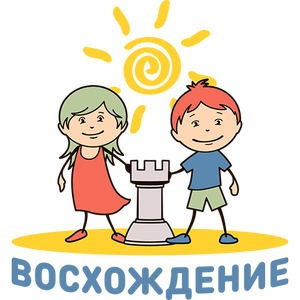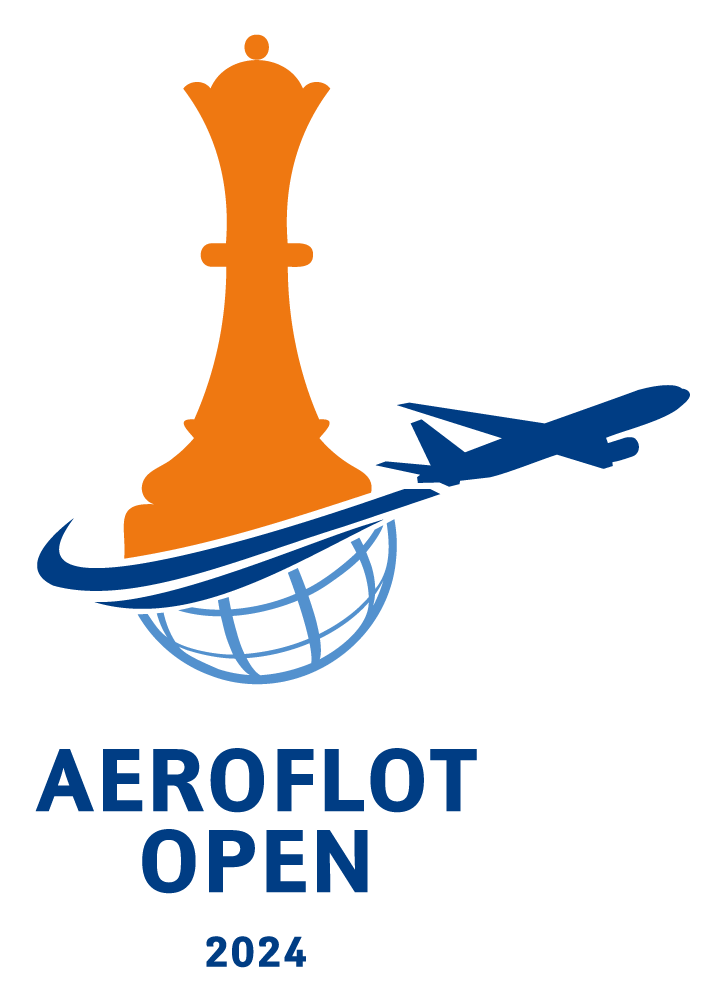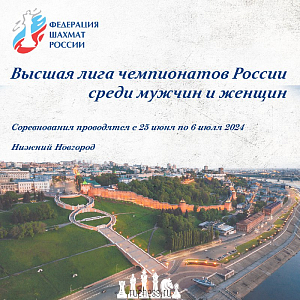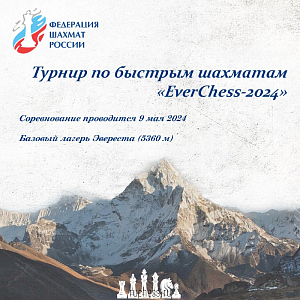Andrey Filatov: At First I Wanted to Send a Cook to India with Gelfand...
Interview in a special edition of Sport-Express

The most important event in international chess in the past year was the world championship match held at the State Tretyakov Gallery between world champion Viswanathan Anand and his challenger Boris Gelfand.
The match took place in the famous museum’s Engineering Building. Vasnetsov’s fabulous painting Three Bogatyrs, which Anand liked, was hanging there, and if you went a bit farther you could also find Aivazovsky’s epic picture The Ninth Wave, which Gelfand had fallen in love with. I was excited because I was standing right next to Ge’s painting What is Truth?
The truth was that this event, a masterpiece of art and sport, was brought to the world thanks to the initiative and substantial backing of Andrey Filatov, the Russian entrepreneur, patron of the arts and philanthropist.
THE BEST JOB IN THE WORLD
He became mad about chess when he was a child living in Dnepropetrovsk. His father died young, when the boy was in his first year at school. One day, when he was in his third year, a middle-aged man came into the classroom. He said, “Children: who’d like to learn to play chess?” A forest of hands went up. And so Filatov found himself studying in Alexander Valeryanovich Sinitsyn’s chess school, where Sinitsyn became a second father to him.
The years passed, and his mentor was pleased by Filatov’s successes at the chess board, but Sinitsyn was especially delighted when the youngster said he wanted to dedicate his life to chess and would go to study in the chess department of a sports institute.
It was summer, and the weather was hot. Filatov was swimming in the River Dnepr with a friend. His pal’s girlfriend Natasha Borodulina, a chess player, said, “Where are you going to study, Andrey?” He replied, “I don’t know.” “Come toMinsk with us, then,” said Natasha.
That settled it. And it was there, at the State University of Physical Training in Minsk, that Filatov got to know Susan (Zsuzsa) Polgar, Ilya Smirin, Boris Gelfand, Jurij Zezulkin and many other chess professionals.
“I thought then, and I still think now, that to be a professional chess player is the best job in the world: people are free, they travel the world and do what they love best – playing chess. What could be better?!” Filatov asked me, and I agreed. I used tothink the same myself.
“At that time I thought, if I don’t manage to become a professional player I’ll be an international arbiter, I’ll travel from country to country and judge matches. And if that doesn’t work out, I’ll become a sports official,” he sighed, as if to say that’s still not what he’d like to do.
Fate plays with a person, but a person plays chess.
Andrey Filatov was not destined to become a chess professional or an international arbiter, and he didn’t become a sports official. Instead he became a successful businessman, and instead of the difficult life of a player he had the opportunity to help chess – and chess players.
MONEY DOESN’T ALWAYS SPOIL THINGS
“Do you think you’ve changed a lot since you became rich?” I asked Filatov, whose wealth is estimated at 1.3 billion dollars by Forbes.
“Everyone tells me I haven’t, but I think I have.”
“Because now you can give 5 million dollars to a world chess championship match?”
“In the first place, the budget for the match turned out to be a lot more than 5 million. The city of Moscow helped, as did the Tretyakov Gallery and my partner. As for a ‘gift’, it wasn’t a gift! This wasn’t some kind of whim on my part!” Filatov began to search for the right word, and found it:
“I wasn’t making a gift, I was realising myself!”
At this point your correspondent decided to clarify one important detail:
“The 5 million dollars that you spent on the match at the Tretyakov – was it written off against the company’s profits, or was it your own money?”
Filatov gave me an inquisitive look and smiled:
“That’s a good question. Those millions were my own money: it was paid into my account with Sberbank, I paid the tax on it and then gave it away. My attitude to charitable giving is like this: if you need to change something around you, do it. I don’t like it when someone charges their charitable giving to the company, but it’s better than nothing. My view is: pay your taxes and give money away. Then you’re getting somewhere.”
Andrey Filatov does a lot of charitable acts like this, but he doesn’t like to talk about them, so I’ll just list some well-known examples of his charitable giving from Wikipedia.
Filatov founded and sponsors the Sinitsyn Memorial tournament, which has been held in Dnepropetrovsk since 2001, in memory of his mentor Alexander Sinitsyn.
He financed the restoration of Russian chess player Alexander Alekhine’s gravestone in Montparnasse Cemetery, Paris.
He is a trustee of the Valaam monastery.
He helps the Morozov Children’s Hospital in Moscow.
He finances the restoration of monuments and graves of Soviet soldiers in Estonia.
He supports contemporary Russian literary and creative figures and is involved in financing a number of humanitarian programmes.
NOT JUST ICE HOCKEY AND JUDO…
“So 5 million from your own pocket: that’s not a gift but an act. But there must have been some motive behind it?”
“Well, of course, and that’s Boris’s fault.” Filatov always smiles gently when he speaks of Boris Gelfand, his friend from their student years. “When Boris got back from Kazan, where the candidates’ tournament was held, he came to my house and showed me his medal,” Filatov explained. “We reminisced about our Minsk days and looked at the pictures that I collect, and then I asked him: ‘So where will the match be?’ He said, ‘I don’t know. Probably in India.’ I said, ‘Are you kidding?! InIndia?!’ and I immediately recommended a good cook. Then I said, ‘What about Moscow?’ Boris said, ‘There wasn’t a single application from Moscow.’ Again I said, ‘Are you kidding?!’ A friend of mine who was with us laughed: ‘The Moscow merchants should be able to find the money.’
“I got thinking,” Filatov continued. “There hasn’t been a world championship contest in Russia for a quarter of a century… And the very next morning I called the Russian Chess Federation, introduced myself and asked what we’d need to do to put in a bid from Russia to stage the match. I have to hand it to the federation: they got to work quickly. I submitted a written application, not thinking I’d win. I decided the only way anyone could outbid me would be financially, but if India put up more money, Boris would earn more. But our bid did win. It turned out later that we had offered just a token amount more than India.
“For me as a businessman, the mere fact that our bid won was a remarkable success.
“I’m very grateful to Irina Lebedeva, the director general of the Tretyakov Gallery, for supporting our idea and putting her brand at our disposal,” said Filatov. “It wasn’t easy to cope with an incredible surge of visitors to the Engineering Building. I’m also proud that when the match ended, the two great chess players were received by the head of state. This was noted all over the world. There wasn’t much comment on it, but believe me, it was noted at all levels. After all, there was a stereotype view: Putin is only interested in ice hockey and judo… But he received the world chess championship contenders in the Kremlin, and it seems to me this shows that Russia is developing not just in one way but in lots of ways. For me, this fact is the main event of the year.”
HOW MUCH IS THE COFFEE-GRINDER, MR CHESS PLAYER?
When asked how his journey into big business started, Andrey Filatov recalled with a smile how as a young man he had had to sell coffee grinders, irons and hairdryers in a Polish market:
“In those days I still had chess ambitions, so I went to a tournament in Katowice, completely loaded down with books, and with notebooks full of analyses, and I got seriously prepared. But the tournament was cancelled, and then I saw that my colleagues were selling consumer goods: coffee grinders, irons, hairdryers. I looked at what they cost here and what they cost there, and it was obviously an economically viable proposition. So the next time I went fully equipped.”
“Did you have to stand in the market?”
“We tried to sell everything wholesale to traders in their flats, but sometimes we had to stand in the market too.”
“So you were setting up a small commercial enterprise, as it were…”
“It was a matter of surviving. Our grant was worth 3 dollars, and we were delighted when we managed to earn 10.”
“And how did you get into big business?”
“In the 1990s a lot of businesses rushed into the international market so they could deal directly, without intermediaries. My friends and I had nothing to sell, so all we had to offer was our services. We tried to work out a system for land and sea transport. That business was in a hell of a mess. Businesses and their clients were losing money for really trivial reasons. For example, a steel works made huge losses because the steel wasn’t secured properly and so it couldn’t leave the port.”
“Did you have to manage everything yourself?”
“Yes, of course. I slept in the car. Four or five hours. There was no other way to do it.”
“Do you sleep a bit better now?”
“Back then I was investing myself; now I invest money. That means more time for sleeping but more risk too.”
“What’s the most important thing in your business?”
“The main thing in our infrastructure sector is trust. It’s a very capital-intensive sector, and if you want to stay in it you have to have your partners’ trust, in both the local and international markets. They need to know that you’ll act honestly and won’t deceive them. They need to understand your logic and believe in what you’re doing, trust your ideas and your ideology. The key word is trust.”
500 TONNES OF FUEL OIL ON TOP
“So you immersed yourself in business, and I guess there was no time to play chess?”
“One day I had to play a game against a major businessman who must remain nameless. We were having big discussions about a contract. Our side thought the cost of the service should be a particular sum, and our partners wanted it to cost them considerably less. So the amount was disputed – and it was suggested we play a game of chess for it.”
“Whose idea was that?”
“The person who proposed that we play for the money was representing our customers and was a fairly strong player. My colleague, who was the senior negotiator, pointed to me and said, ‘He’ll play.’”
“Were the stakes high?”
“I can say the amount involved was more than the prize fund for the world championship match. And we threw in 500 tonnes of fuel oil on top.”
“What did fuel oil cost in those days?”
“I can’t remember now, but it was good money.”
“Did you manage to win?”
“Yes. My opponent made a mistake with a sacrifice combination. The contract was concluded on our terms.”
“That shows what a good education is worth! After all there was a reason for you to go to Katowice with a suitcase full of books and notebooks full of analyses…”
“From the point of view of economic viability, yes. That game paid for all my chess studies. But as for chess as a whole, I could never imagine myself without it. I don’t think I would exist if it weren’t for that great game!”
SEE YOU IN THE LOUVRE?
Of course, when he said that he would not exist if it weren’t for chess, Filatov didn’t mean he wouldn’t exist physically. But Filatov the chess patron who put up more than 5 million dollars of his own money for the match at the Tretyakov certainly wouldn’t exist. Neither would the wonderful world championship match in the Tretyakov Gallery, if he had not studied as a child in Alexander Valeryanovich Sinitsyn’s school or studied so hard with Boris Gelfand in the chess department at the Institute of Physical Training.
If he hadn’t had a book of Alexander Alekhine’s best games he would not have thought of his next art/chess project: to hold the first part of the Alekhine Memorial Tournament in the Louvre and the second in a Russian museum.
So that’s how it is: if it weren’t for this great game, Andrey Filatov wouldn’t exist.
Interview by Yuri Vasiliev






















